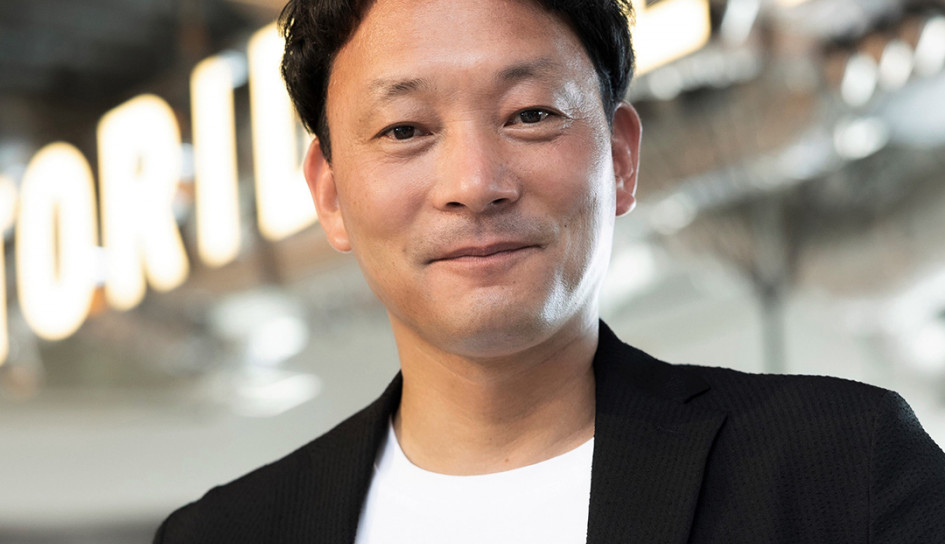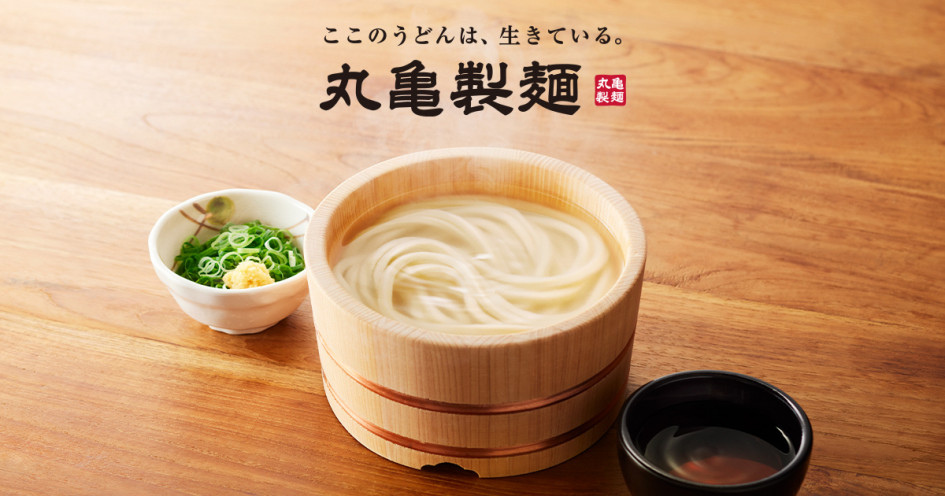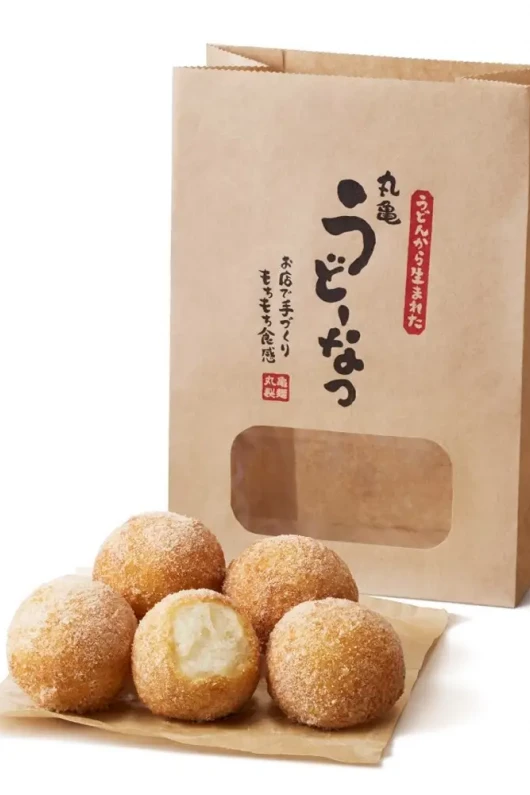Tapping into New Emotions
With Katsuaki Nagumo, Executive Officer and CMO, TORIDOLL Holdings Corporation
Welcome to Eat Takeaway! In this series we hear from business, brand and marketing leaders on their ambitions and challenges this year and beyond. We explore their day-to-day and what lessons they have in the fast-changing and sometimes overwhelming worlds of brand experience and delivering for customers and employees. Check out our take-aways at the end!

In our latest edition we are joined by Katsuaki Nagumo, Chief Marketing Officer at TORIDOLL Holdings, one of Japan’s largest restaurant owners and operators with over 20 brands in its stable including Marugame Udon, Kona’s Coffee and Franco Manca. Credit for the success of TORIDOLL and its brand portfolio has been given to the firm’s emotion-driven marketing strategy known as ‘KANDO’. As TORIDOLL pursues its mission to bring emotive, authentic dining experiences to the world, we hear about the central role the KANDO marketing approach plays in delivering on their goals and ambitions.
Please note this interview has been edited for clarity and brevity.
Tazlu Endo: Thanks so much for joining our series. First off, tell us about TORIDOLL.
Katsuaki Nagumo: TORIDOLL is a global Japanese food company operating approximately 2,000 restaurants in nearly 30 countries across more than 20 brands. 2025 will mark our 40th anniversary under our founding president as well as the 25th anniversary of Marugame Seimen, one of our top brands. We’ve expanded internationally beyond our homegrown Japanese brands through mergers and acquisitions of overseas brands. A key element is that each of these brands offer a distinct experience to customers whilst also having the potential to transcend border and cultural differences and be truly global.
The fundamental philosophy behind KANDO marketing is growth via emotion.
TE: Tell us about your background and role at TORIDOLL.
KN: I have over 20 years of marketing experience — around 10 years in the sports industry and 11 in the food services industry. In my previous roles, I was captivated by the excitement of the food business and aspired to working on a global scale. I joined TORIDOLL in 2018 as the Head of Marketing and have also been serving as the Executive Officer since 2021. From 2022, I became the Chief Marketing Officer, overseeing public relations as well as internal marketing as the Head of the KANDO Communications Division. Additionally, I serve as an Executive Officer and Head of Marketing at Marugame Seimen, one of our business subsidiaries.

TE: Could you tell us about KANDO-driven (emotion-driven) marketing?
KN: The fundamental philosophy behind it is growth via emotion. Our brand values, customer experience, employee experience and CSR all revolve around delivering emotional experiences. By putting emotional experiences at the core of our brand and prioritizing emotional resonance, we can improve the experience of employees and customers, increase brand awareness and value, and ultimately increase business performance. Our team of around 30 members across marketing, PR and internal communications, are the drivers of this emotion-driven marketing strategy. I think our integrated approach to internal and external marketing is quite rare in Japan. ‘Dining experiences that move you’ is the slogan that we started with, and it informs all aspects of our corporate strategy.
TE: Can emotion truly be a driver of growth?
KN: To make sure that our brands are consistently chosen, we develop, create and examine the effectiveness of our strategy through both intuitive and data-driven methods. It’s crucial for our employees to internalize the fundamental principle that creating emotion can be the source of commercial success, rather than just focusing on profit generation alone. At TORIDOLL, we have approximately 30,000 employees, and we work with them to create emotional experiences for our customers. Our NPS (Net Promoter Score) measuring customer loyalty has increased by 400% over the past three years, which goes to show that our strategy is working. Increased employee motivation leads to more customers, improved business performance and more positive feedback, leading to a virtuous cycle. The spark that ignites this process is the creation of emotional experiences.
Our NPS (Net Promoter Score) measuring customer loyalty has increased by 400% over the past three years, which goes to show that our strategy is working.

TE: Why does TORIDOLL focus on emotional impact over cost-efficiency?
KN: Let’s say cost efficiency could yield a short-term profit of 100 million yen. Abandoning emotional impact would still eventually lead to a decline in customers. Easy-to-agree-upon strategies are often simplistic and lack originality. In contrast, tackling difficult challenges that others might give up on can lead to discovering a blue ocean of opportunities.
For example, an inefficient selection of choices can be a barrier to entry. We recently launched Marugame Udonuts, donuts containing udon dough, a product that wouldn't have emerged from pure rational thinking. It took three years of persistence to bring it to market, and we sold one million units in the first six days and more than three million in the first three weeks. This product became a new entry point, expanding our customer base for udon and boosting sales of our takeout udon lunches too. There’s no guarantee of success, but unconventional approaches can create experiences that surpass expectations.
It took three years of persistence to bring it to market, and we sold one million units in the first six days and more than three million in the first three weeks.
TE: Why do you target your employees as much as you do your customers?
KN: You can’t create a unique emotional experience for customers without thinking about and exploring the employees experience. And it’s crucial to develop this understanding in employees. If an employee's engagement is enhanced by workplace satisfaction and happiness, turnover will decrease, and more staff will desire to contribute to creating more remarkable experiences. The issue of labor shortages in the food service industry is particularly severe in Japan. If we don’t create workplaces that many people want to work in, business growth can’t be expected. That’s why you need a strategy that integrates HR and marketing, always keeping an eye on what might happen in the next few years.
TE: Were there any challenges in promoting the concept internally?
KN: When I first joined the company, there were concerns around possibly upsetting existing customers, and every time we tried to advance reforms, there was a sense of distrust like "Who is this Nagumo guy?" Therefore, I initially focused on carefully listening to others and addressing difficult internal requests with full effort. After I was able to build this foundation of trust, I then proceeded with logical reforms, and as the numbers improved, employees began to see me as an ally. The idea of implementing the noodle craftsman system in all Marugame Seimen stores was initially met with strong opposition due to perceived unpracticality. However, after overcoming many challenges over four years, this initiative led to an increased NPS score with positive feedback regarding the deliciousness of the udon, which in turn boosted both motivation and performance on the ground.
We want to elevate the value of workers and engage in win-win business relationships with our partners.
TE: What are your future business goals?
KN: Currently, TORIDOLL is ranked around 6th or 7th in the domestic food service industry. Our current goal is to increase the number of our stores from roughly 2,000 to 4,900 by the end of our 2028 financial year, and to grow our annual sales from 230bn Japanese yen (approx.. US$1.5bn) to 420bn (US$2.7bn). If we succeed and enter the top 3 in Japan, our presence will increase and we can broaden our customer base. By steadily scaling up the business, we aim to eventually break into the global top 10. By that time, our hopes to bring authentic dining experiences to the world should become more tangible. We can’t fulfill our mission without tangible business goals and metrics. Through our business, we’re setting out to prove that growth through emotional impact is effective.
TE: What kind of impact do you hope to make on society through your business?
KN: There’s still a lot that can be done through marketing. One of these is to help Japan break free from stagnation. The Japanese food service industry has not changed much over the past 50 years. There are challenges related to wages, working conditions and social status. We want to elevate the value of workers and engage in win-win business relationships with our partners. I hope to spread more excitement across business and society, transcending individual positions, companies, and industries. If the status of the food service industry improves and the value and salaries of workers increase, it will undoubtedly lead to broader, better societal change. I also want to globally promote the excellence of Japanese food culture and contribute to increasing Japan's international presence and influence. We are striving to create positive change through TORIDOLL's diverse brand portfolio.
The Eat Take-Away
Inspired employees = loyal customers: Brands cannot focus only on customers when developing strategies for success. Engaging employees, bringing them on the journey and placing them at the heart of ideation and experience development is critical. If you can’t attract the best staff, you can’t expect sustainable growth for your company. Nagumo san has embraced this fundamental truth, avoiding micromanagement and fostering a corporate culture where challenges are celebrated.
Dilemmas are gateways to an ocean of opportunities: Nagumo san’s experiences challenge the Japanese saying 'chase two hares and catch neither.’ Whenever faced with a choice between profit and quality, he sought a third path that would enable long-term growth by investing heavily in quality and experience. Quality and experience drives customer loyalty which in turn drives repeat purchase, new customer acquisition and therefore profitability.
Build upon trust: Building trust among colleagues is essential for executing reforms and new investments that carry a risk of failure. Begin by addressing internal opposition and alleviating concerns, then carry through with the decisions. Even if results take time, when they are achieved, trust is further strengthened and new opportunities become possible.
If you enjoyed this piece, subscribe here to The Eat Digest - our monthly newsletter covering our latest insights, Japan brand and marketing news, and much more!